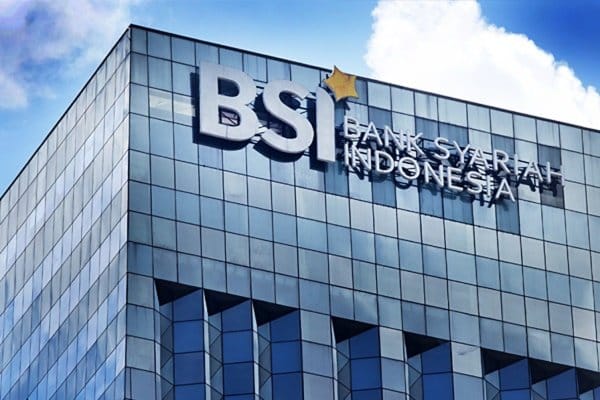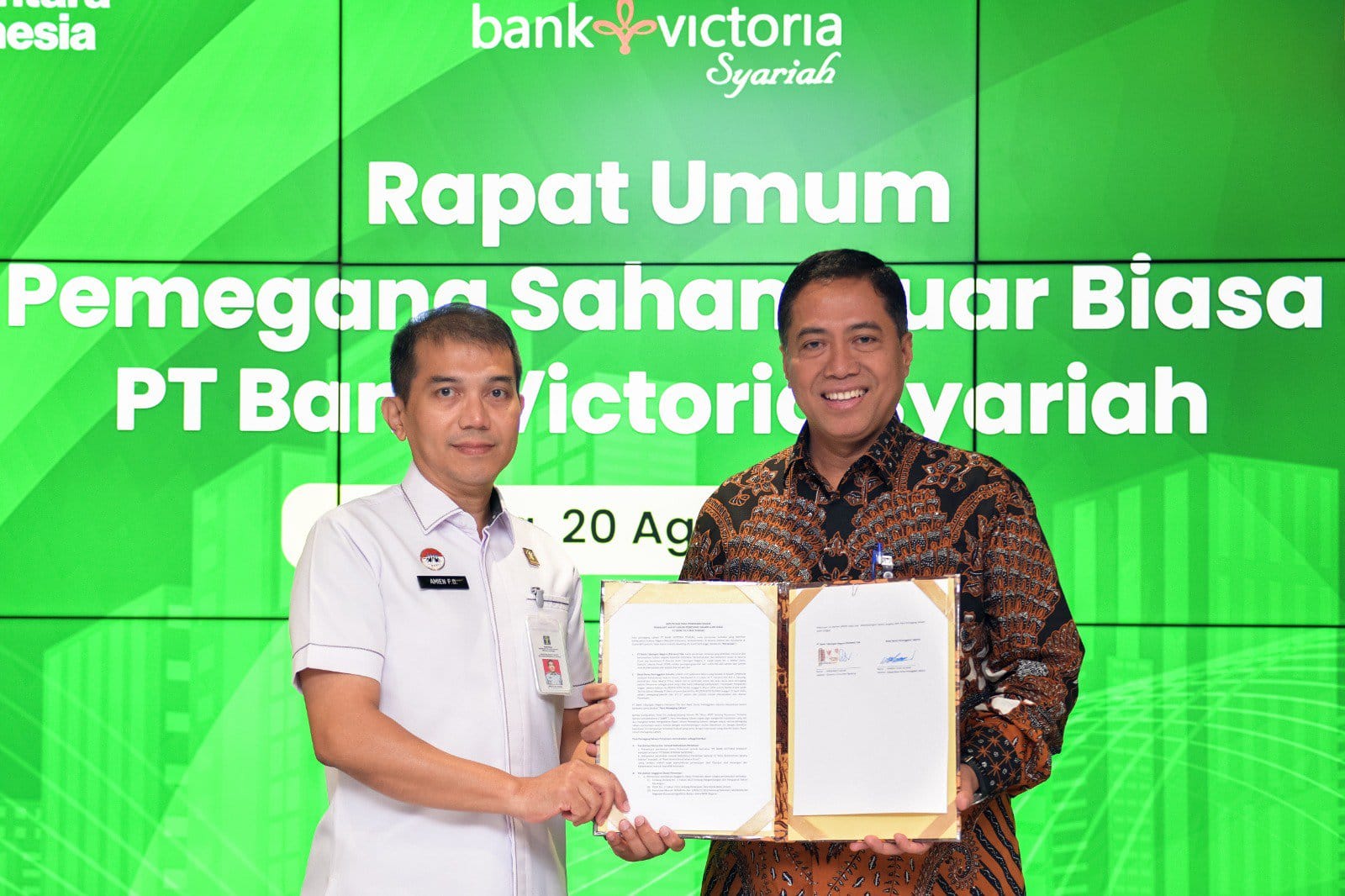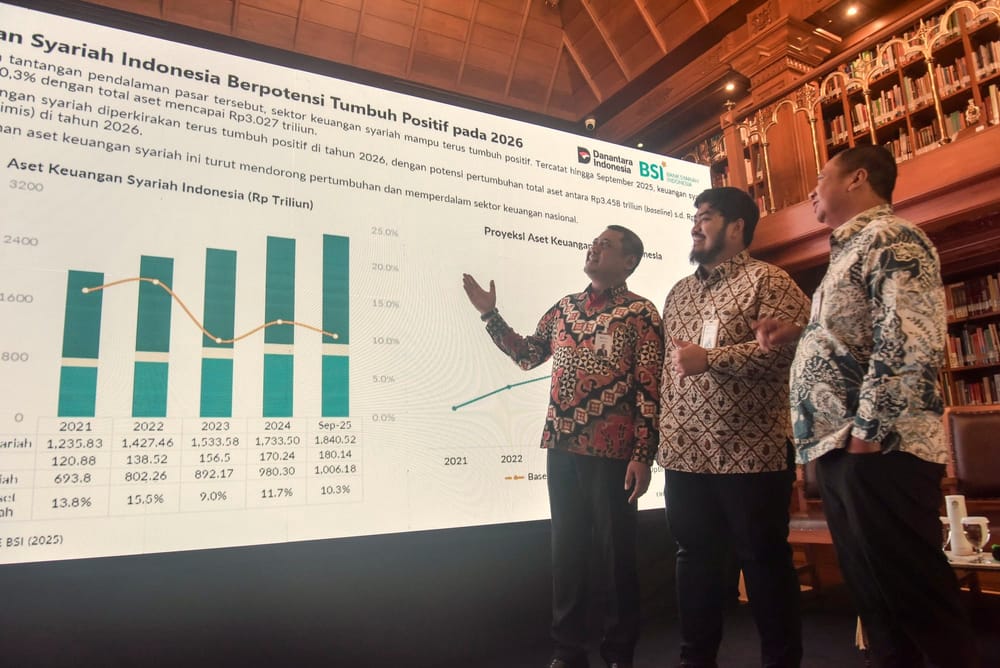For about four years, Bank Syariah Indonesia (BSI) has been flying high at the top of the domestic sharia banking industry. The bank, a result of the merger of three sharia banks – Bank Syariah Mandiri, BNI Syariah, BRI Syariah – has been able to attract a large customer base.
Now, BSI has a sparring partner livening up the country's sharia banking industry: Bank Syariah Nasional (BSN). Not only does it present healthy competition with BSI, the presence of the bank resulting from the "merger" between BTN Syariah and Bank Victoria Syariah could accelerate the pace of this industry.
The shareholders of Bank Victoria Syariah (BVIS) themselves officially approved the change of the company's name to Bank Syariah Nasional (BSN) in an extraordinary general meeting of shareholders (RUPSLB) held at Menara BTN, Jakarta, Wednesday (20/8/2025).
This decision is also related to the spin off process of BTN Syariah, which was previously a sharia business unit (UUS), into a sharia commercial bank (BUS). Meanwhile, BVIS will act as a shell company in the establishment of this BSN. The strategy clearly separates BTN's sharia entity so that it can grow more independently, with a stronger new identity.
"In the future, the BSN name will be used by BTN Syariah as the company's branding and service products, of course after going through all the licensing processes from the regulator," said Ramon Armando, Corporate Secretary of BTN.
For BTN, this spin off is part of their grand roadmap. For many years, BTN Syariah has been known to focus on property financing, especially subsidized housing for middle to lower income communities.
This segment is certainly its hallmark as well as its competitive advantage. But now, with the birth of BSN, BTN wants to go further not only in housing, but also in other strategic sectors.
Now, with the birth of BSN, BTN wants to go further not only in housing, but also in other strategic sectors.
This step was welcomed by many parties, including academics. Sharia Economic Observer from IPB University Irfan Syauqi Beik sees the birth of BSN as an important momentum that can strengthen competition in the sharia banking industry.
"I very much welcome the birth of BSN. Hopefully this can further increase the level of competition in sharia banking," Irfan told SUAR, Sunday (24/8/2025).
However, he emphasized that there are several important notes. First, the spin off of BTN Syariah and the acquisition of BVIS do not automatically increase national sharia banking assets.
"Therefore, I hope that BTN can strengthen the core capital of Bank Syariah Nasional in the future," he said.
Second, it is hoped that BSN will not take long to really take action. "As the controlling shareholder, BTN is expected to continue to provide support for strengthening the technology system used by BSN," he suggested.
The third note is more strategic, Irfan encourages BSN not to only focus on the property sector. According to him, the presence of BSN should also be directed to support national programs, starting from food security, renewable energy, the halal industry, to the hajj ecosystem.
"Including the hajj village program in Saudi initiated by the President, this could be one of BSN's real roles in the future," said Irfan.
Growing but still lagging behind
The presence of BSN, whose assets are estimated at around Rp 100 trillion, is expected to boost the growth of the sharia banking industry. So far, the sharia banking industry has indeed grown but is still lagging behind compared to the overall banking industry.
Citing data from the Financial Services Authority (OJK), as of June 2025, the assets of the sharia banking industry reached Rp 967.33 trillion or 7.41% of the total national banking industry. This figure grew 7.82% compared to the same period last year.
Total third-party funds (DPK) collected by the sharia banking industry in June 2025 reached Rp 738.84 trillion, growing 6.98% compared to the same period last year. Meanwhile, the total financing of the sharia banking industry in June 2025 reached Rp 666.04 trillion, growing 8.38% annually.
According to a report by the National Committee for Islamic Economics and Finance (KNEKS), the total assets of Indonesian Islamic finance in 2024 reached Rp 9,927 trillion, equivalent to 45% of the gross domestic product (GDP). Although growth slowed from 22% in 2023 to 11.8% in 2024, the sector continued to grow positively and solidly.
Entering 2025, the growth trend has strengthened again. As of Q1-2025, the national sharia finance market share reached 25.1%, with total assets of Rp 9,529.21 trillion. This figure confirms the important role of sharia finance in supporting the stability of the national financial system.
When broken down by sector, the sharia capital market dominates with a contribution of 86% or Rp 8,176.12 trillion. Its growth was 4.7% (YoY), far above the growth of the national capital market, which was only 1.4% (YoY). Sharia banking, where BSN will compete, contributed 10% with total assets of Rp 960.82 trillion, growing 7.6% (YoY) and higher than the growth of national banking (7%).
Meanwhile, the sharia non-bank financial industry (IKNB) sector contributed 4% or Rp 392.27 trillion, with a growth of 10.9% (YoY). The largest contribution came from the Hajj Fund Management Agency, which accounts for 45% of the total assets of sharia IKNB.
“The achievement of the total assets of Indonesian Islamic finance is concrete evidence of the transformation in the Islamic finance landscape in Indonesia. Growth from all sectors not only strengthens the resilience of the national financial system, but also sends a strong signal that Islamic finance is ready to be a driving force towards a more inclusive, sustainable and globally competitive Indonesia,” wrote KNEKS in its official statement.
Competitive landscape
In the sharia banking industry landscape, BSN will face giants such as Bank Syariah Indonesia (BSI), which was born from the merger of three state-owned sharia banks. With a relatively small market share, BSN needs to cultivate a specific niche so as not to merely become an "additional player."
“The property and housing market is a separate niche for BSN's branding. In addition to that, BSN must be able to expand into the food, energy and hajj sectors,” said Irfan. Thus, BSN is not only known as a sharia property bank, but also an active player in strategic national programs.
In addition to segment strategies, the challenge of digitalization is also very important. In the era of fintech ecosystems and mobile banking, technology is no longer just a support, but a main foundation. According to Irfan, BTN's support in terms of capital and digital transformation will greatly determine whether BSN is able to compete and grow.
"Digitalization must be good, and don't let the quality of service and technology decline after the spin off. This is a separate challenge (for the new bank)," he said.
The industry context also shows how big the opportunities are. OJK data shows that the market share of Indonesian sharia banking is still around 7%–8% of total national banking, or 7.44% in 2024. This figure is still far from the potential of the large Indonesian Muslim market. Therefore, the presence of new players such as BSN is expected to be an accelerator for growth.
BTN itself brings experience. While managing its sharia unit, BTN is accustomed to serving the middle class, the group that is the backbone of the banking market. With its new status as a sharia commercial bank, BSN gains greater flexibility to innovate, expand its network, and respond to ever-changing industry challenges.
Center of sharia economics
The presence of BSN could help realize Indonesia's mission to become the center of the world's sharia economy in 2029. Currently, Indonesia already has BSI, which is included in the ranks of the Top 10 Sharia Global Bank in the market capitalization category.
The government itself is determined to make Indonesia the center of the world's sharia economy in 2029.
In line with positive support from the government, Deputy President Director of BSI Bob T. Ananta said that as the largest sharia bank, BSI fully supports the government's hope to make Indonesia the center of the world's sharia economy.
Bob emphasized that BSI will definitely take part in realizing these expectations. “BSI will focus on three major agendas. Namely, strengthening the halal value chain, developing sharia finance and literacy, and sharia financial inclusion,” he said.
BSI, said Bob, has a strategic role in this major agenda. The presence of BSI is expected to be a new sharia economic force to drive a larger Indonesian economy.
“The sharia economy is expected to be a symbol of the nation's economic sovereignty. Through the development of the Halal Ecosystem, BSI supports all segments, both wholesale and UMKM, to jointly increase the halal value chain,” said Bob.

In the National Sarasehan on Sharia Economics and Finance last week, BI Governor Perry Warjiyo conveyed six national strategic initiatives to support the sharia economy. Namely, the first initiative, Gerbang Santri (Development Movement for Islamic Boarding Schools and Halal Value Chain) to strengthen the economic independence of Islamic boarding schools so that they can become part of the halal ecosystem chain.
Second, Jawara Ekspor (Sharia Entrepreneur Network Encouraging Exports), to increase exports of halal products by building an integrated halal export support information system, synergizing the strengthening of market access, and strengthening international cooperation in the halal product trade sector.
Third, namely Gema Halal (Congregational Movement for Halal Acceleration), is carried out to accelerate the halal value chain, through increasing halal certified products.
As an effort to encourage the growth of sharia financing, Bank Indonesia has also initiated the fourth and fifth initiatives, namely Sapa Syariah (Synergy of Trade and Sharia Financing) and Kanal Ziswaf (National Collaboration for the Development of Zakat, Infak, Sedekah, and Wakaf).
As for the sixth initiative, Lentera Emas (Literacy and Sharia Economic Inclusion towards a Golden Indonesia) is focused on various literacy programs to improve public understanding.
Minister of Finance Sri Mulyani also emphasized the importance of a strong sharia finance sector to support Indonesia's commitment to becoming the center of the world's sharia economy. The share of sharia financial assets, which currently reaches 51.42%, needs to be continuously increased, especially in inclusive and sustainable sharia financial instruments such as Green Sukuk and Cash Waqf-Linked Sukuk (CWLS).
Meanwhile, the Chief Executive Supervisor of Banking at OJK, Dian Ediana Rae, said that the separation or spin off of UUS is an implementation of fulfilling the provisions of OJK Regulation Number 12 of 2023 concerning Sharia Business Units, for UUS that have assets above IDR 50 trillion and or total assets of UUS that have exceeded 50% of the total assets of the parent company.
According to OJK's monitoring, in addition to the spin off of UUS BTN Syariah into BSN, there are also plans to separate UUS PT Bank CIMB Niaga Tbk. The spin off process for the two UUSs is currently proceeding according to the stages of the separation plan that has been submitted to OJK. Furthermore, the target for implementing the separation will continue to consider applicable licensing and requirements.
OJK supports this separation process as part of strengthening the national sharia banking industry. "OJK hopes that in the future, BTN can achieve an economic scale that can compete with the largest sharia banks in Indonesia," said Dian, Tuesday (25/8/2025).






